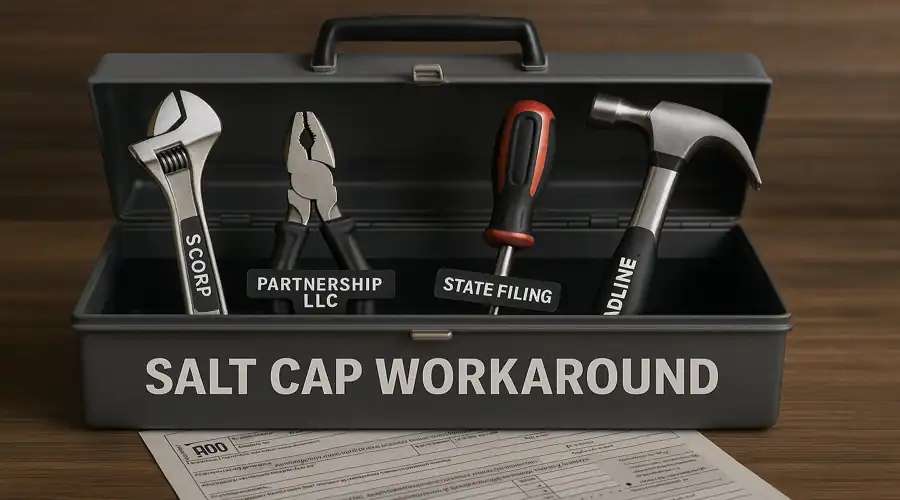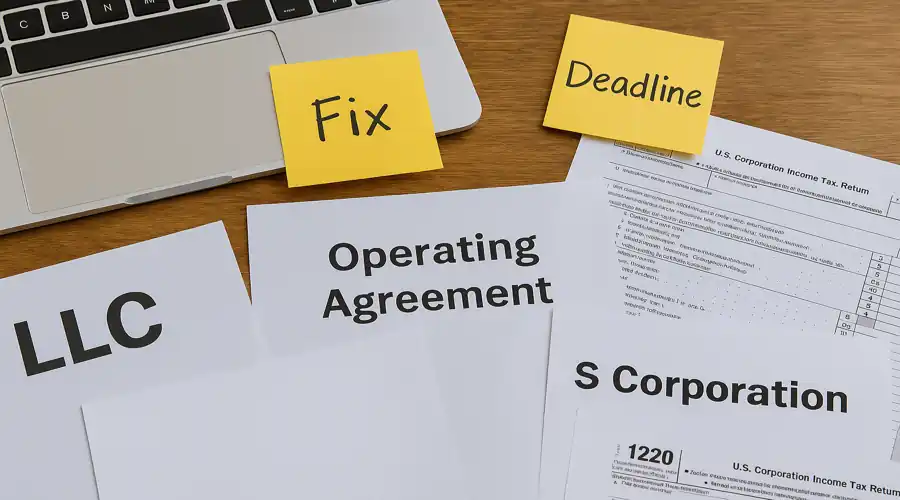As we have been working through tax returns for clients this tax season, it’s alarming to see how many clients aren’t maintaining their checkbook properly, or not even having a separate checkbook at all for each of the companies they own and operate. It is important that you have checkbook procedures for your business to succeed.
I’m not just talking about a tax savings strategy… I’m also talking about saving you from a potential lawsuit and also losing your sanity.
It’s critical that each company a business owner forms has a separate checkbook for several reasons. Let me suggest five reasons that could truly prove invaluable.
- Corporate Veil. First and foremost, maintaining a separate checkbook substantiates the “corporate veil”, one of the primary reasons for forming a new company. Having a separate checkbook shows that the owner recognizes the company is a separate and distinct entity and hopefully encourages the owner to not “co-mingle” personal and business funds.
- Tax Savings. Second, a separate checkbook will help in saving taxes. Separate checking will improve bookkeeping procedures, prevent expenses being missed, and provide better records to create a better tax return.
- Audit Protection. Having a separate checkbook will help prevent a negative result in an audit with the IRS. The IRS will oftentimes disallow a number of expenses when personal and business expenses are co-mingled in a single checkbook.
- Less Stress and Sanity. One might think having separate checking and bookkeeping for a new company is cumbersome, unnecessary and possibly even a waste of time. When in fact, we have seen time and time again that this procedure will actually save time and money in the long run. When our books are disorganized we ultimately feel ‘undone’ and a constant stress to get it taken care of.
- Improved Decision Making. Having a separate checkbook starts the process of better bookkeeping, tracking of expenses, possibly budgeting and then inevitably quality information decision making. How can we expect to be successful business owners without accurate records? You owe to yourself and your business to have ‘good’ books.
If any of these reasons above inspire you to re-commit yourself to better bookkeeping procedures and separate checking, may I suggest the following:
- Different Checkbooks. For every entity you’ve set up and are operating, you need at least one new checkbook. The checkbooks will be tied to the EIN for each respective entity.
- Don’t commingle. Let each entity’s checkbook collect it’s own revenue and pay it’s own bills. If you want to take profit, no problem…take a draw/distribution. Take your draws and put the money in your personal checkbook. But don’t let the business pay for personal expenses and don’t let your personal account pay business expenses.
- Merchant accounts. If your business needs a merchant account or a website ‘shopping cart’, let the entity and it’s EIN set up the merchant account. This could even be a ‘square’ for swiping cards on your iphone (or whatever service fits your phone and carrier). Don’t use one merchant account for multiple businesses. Let each business have it’s own merchant account, if needed.
- Credit cards. Follow the same rules as checkbooks. Your credit cards don’t absolutely need to be in the name of the business it’s used for, but at least don’t commingle credit cards. That means use the AMEX for business #1, then the VISA for business #2, and the Capital One for your personal account. This will make bookkeeping 10x easier at the end of the year. Stated otherwise, dedicate a credit card to a particular business and don’t use it for personal or other business’s expenses.
- Receipts are not bookkeeping. I want you to keep receipts, but that’s not bookkeeping. Receipts are ‘audit protection’. Scan the receipts, store them, keep them in shoeboxes for a rainy day…if you’re ever audited we’ll pull them out and organize them. But I don’t want to see them and you shouldn’t rely on them for bookkeeping.
- Don’t use cash. Unless absolutely necessary (like tips per se), don’t use cash. It’s terrible for bookkeeping and tracking your expenses. If you have to go on a business trip, pull some cash out of an ATM, but indicate in the books it was for ‘travel’ and which specific trip. Otherwise, never use cash or you’ll lose track of expenses and the IRS will make you cough up receipts if necessary to substantiate them.
- Software. Bank statements and credit card statement are not bookkeeping. They won’t hold up under an audit either. Have more than just an excel spreadsheet… the best solution: QuickBooks. Yes! You knew it was coming. QuickBooks is the fastest way to get organized and save you time and energy in the process. If you are a new business, I suggest starting with the Online version. If you have multiple businesses, which means even one rental property, then the desktop version QuickBooks Pro is worth the investment.
- Finally…reconciling and reports. If you hate ‘doing the books’…that’s ok…just admit and commit to a service to help you. This could be an accounting firm, bookkeeper or even a college student or family member with some QuickBooks experience. Whatever it is, do something! You can’t wait for the end of the year and then hope magically your books will be done and at an affordable price. It will be a mess and cost you. Get your accountant on the same page with you on your bookkeeping needs and ask for help if you need it.
We’re here for you if you need us. We have an Accounting Services team that’s amazing and helps clients with their QuickBooks around the country. But if you don’t like us or are prices…that’s ok…just find someone that speaks ‘your language’ and can help you pull your books together.










Payment completed for Intent ID pi_3PEjDcIlmlJhoaqY0163PHcj